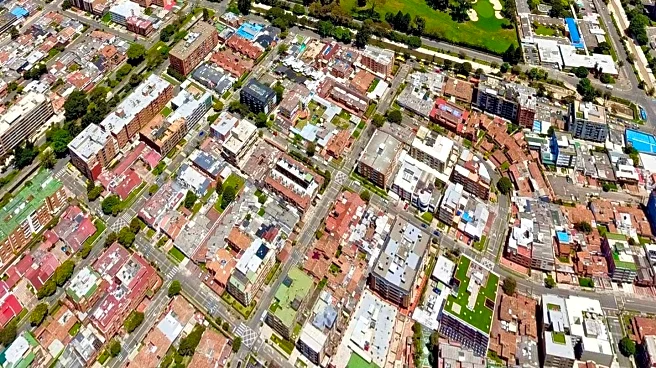What's Happening?
The Headliner Oasis, a well-known nightclub and bar located in Neptune Township, New Jersey, has announced its closure later this month. The establishment will be demolished to make way for a new redevelopment project called Waterways at Neptune, which will include a hotel, residential buildings, restaurants, and retail space. The announcement was made by Tom Sueta, the general manager, on social media, prompting nostalgic reactions from longtime patrons. The Headliner has been a significant part of the community, hosting numerous events and supporting various charities over the years. It will remain open for several final events before its last day of operation on October 20th.
Why It's Important?
The closure of the Headliner Oasis marks the end of an era for the Jersey Shore nightlife scene, reflecting broader trends in urban redevelopment and changing community needs. The redevelopment project aims to revitalize Neptune Township, potentially boosting local economic activity and attracting new residents and businesses. However, the loss of a cultural landmark may impact the community's social fabric, as the Headliner has been a venue for social gatherings and charitable events. This transition highlights the balance between preserving local heritage and pursuing economic growth through redevelopment.
What's Next?
As the Headliner Oasis prepares for its final days, the community may experience a shift in social dynamics, with patrons seeking new venues for entertainment and socializing. The redevelopment project, Waterways at Neptune, is expected to bring new opportunities for local businesses and residents, potentially transforming the area into a vibrant hub. Stakeholders, including local government and developers, will likely focus on ensuring the project meets community expectations and contributes positively to the township's growth. The transition may also prompt discussions on preserving cultural landmarks amid urban development.
Beyond the Headlines
The closure of the Headliner Oasis raises questions about the impact of urban redevelopment on cultural heritage and community identity. As cities evolve, the challenge lies in balancing modernization with the preservation of local history and traditions. This development may spark conversations about the role of nightlife venues in fostering community connections and supporting charitable causes. Additionally, the project could influence future redevelopment strategies, emphasizing the importance of integrating community feedback and cultural considerations into planning processes.









